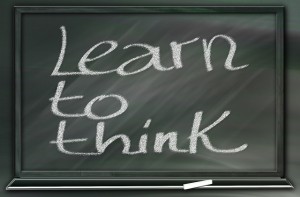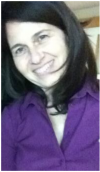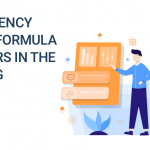From our guest author Tereza Serafimova!
We are ALL susceptible to it. Whether you’re the CEO of a fortune 500 company, a small business owner, or a fresh-out-of-college freelancer. It can drive us to dissatisfaction in the day in and day out, or propel us to achieve and accomplish breakthroughs the modern world has never seen. Alain de Botton, a Swiss-born, British-based philosopher and writer says:
We’re simply not terribly good at being happy whatever state we are in.
The inner self

IT is the inner self, the mind. Under optimal self think and intentionality, it solves problems, creates, empowers and self drives. However, how often can we relate to when self think is left to it’s own devices? Our natural is to focus on the negative, sabotaging tendencies, supercharged when tired, sleep deprived, or in stressful situations. This way of thinking leads us into derailment and less productivity, and ultimately an unhealthy lifestyle.
Never make another New Year’s resolution again, and start the art of “Living Well”
Have you ever thought about the phenomenon of New Year’s resolutions? Why is it that people are compelled to refocus or start something new? Mentally, we see the new year as a new beginning as it gives our mind a way to re-think about old habits and make decisions towards change. The momentum already established at the turn of the year, is actually an excuse we take to connect with that “new” feeling and do something we’ve wanted to do but just never gotten around to.
What happened when that new feeling died off though? Did you actually stick to that new workout plan? Probably not. Why is that?
These resolutions fail time and time again, because change can’t be a piggyback decision to change a behavior due to a feeling we get at the beginning of the year. In fact change isn’t a one time decision to change a behavior. Change is an everyday decision to change a mentality or mindset.
So what does it look like to change a mindset?

That is where the Triangle Method comes in. It practically breaks down the art of “Living Well” and optimal self think unto healthy mindset habits.
So what exactly is the Triangle Method, and how can it be used? Simply, it involves three universal health categories that can be catered to your individual lifestyle. The ultimate goal is to achieve balance between the three areas of health, and understand how they correlated to each other. If one is deficient, the other areas will suffer. These three areas are Physical Health, Mental Health, and Emotional/Spiritual Health. Read on to see explanations, examples and quick tips for each to get started!
1) Physical Health

Category one for Living well is Physical Health, and wheather you are an endurance athlete or a busy 9-5 Millennial trying to make it in the world of adulting, you CAN and SHOULD focus on some sort of weekly physical activity. Start out slow if you aren’t doing this already, and spend time doing something active you already like or know how to do. If you are already active in this area, see how you can further challenge yourself to grow over the next year, and break this down into monthly goals to get there.
Examples: Start hiking with friends on the weekend, or join a friend at their Gym to see if you like working out with them. Get at least 8 hours of sleep. Drink 8 glasses of water a day. Stretch in the morning.
Quick Tip: Sticking to the plan means at the same time modifying and adjusting it according to the improvement you make and specific daily needs. Your plan will change weekly as other things come up and life progresses, but you should be on top of the balance and ebb and flow of your plan. Setting time on a weekly basis (1-3 hours) to regularly evaluate progress and where adjustments are needed will be the crux of the success for this plan. Buy a journal and write down the nitty gritty details of your plan and how you plan to execute in time, resources, and management.
2) Mental Health
This includes taking care of your overall mental map and habits. Time regularly set aside to process, rest, and learn will be a crucial foundation of this category. Taking care of your overall mental map and habits looks like evaluating your decisions, tendencies in thinking, and dedicating intentional DAILY focus on one area every several months to tackle, esp if it’s a hard mindset for you to get rid of or change. Remember, we want permanent mental change, not behavior changes.
Examples: Get rid of negative self talk, and start training yourself to look for the positives, the silver linings. Keep a journal where you write down all of the things you were grateful for that day, and what you could be grateful for.
Quick Tip: Write it, think it, do it: The power in your decision goes only as far as your effort in laying out a plan and meditating on that plan. In this process, your mindset is already beginning to change.
3) Emotional / Spiritual Health

Emotional and Spiritual Health I categorize as one because spiritual journeys can take many shapes and forms and are often tied to emotions. The key idea however, is your ability to be in touch with your belief system and emotional reasoning. Everyone have these systems set up, and what you believe can keep you from change and mindset shifting, or it can empower you do anything. Identifying the spirits (beliefs) behind your decisions will show you the underlying emotional habitat.
Examples: Susan wanted to leave her Tom’s Burgers waitressing job all of 2015, but didn’t. She said it would be too complicated to start doing graphic design as a freelancer and that she didn’t think she could make a living off of it. Underlying belief: Fear and focus on the negative. She has chosen to see the negative outcome, rather than the good potential outcome. It’s a self fulfilling prophecy if she’s focusing on the problem, and not the potential and making changes to get to the potential.
Quick Tip: As individual and unique as you are, so will your Living Well mentality and lifestyle be.
The Triangle Method is simply taking control and making a change in three areas on your life with physical, mental, and emotional/spiritual growth to achieve an optimal lifestyle of “Living Well”. Each area correlates to the others, and can be affected by unhealthy habits in any area.
I’ll break it down for you in this real life way. Did you know it is a myth that the stress is a negative occurrence and it must be avoided? This core belief has an anchoring effect on the path to “Living Well”. The truth is that from the physiological perspective, stress is a potent galvanizer! It creates physical and psychological power, cognitive clarity and focus!
What is key here is identifying the difference between the eustress, optimal level of stress that has the positive impact and increase level of performance, and the extreme and harmful stress. If the later stress type lasts for a long time / is chronic, it could lead to biological changes that may place you in risk for disease 1. This is a physical health problem correlated to a mental and an emotional/ spiritual belief problem.
The psychological definition of stress is as follows:
The focus on subjective assessments of the individual, that relate to their ability to cope with the exceeded demands of specific events or experiences.
If you believe that you can’t do something, and focus on just that, it will have negative physical and mental implications. So we see an emotional/spiritual belief, spilling into a negative mental habit issue that eventually affects your physical health if not dealt with. The optimal way to handle the situation is to change what you believe about yourself, and change what you meditate on, both spiritual and mental changes.
Now that you are equipped with this Triangle Method, take charge and write down your plan today. Let this be the year you believe in yourself, stop negative mindsets in their tracks, and take care of your body so you can really rest and think through all of the new areas you plan to on change this year! Let’s start the art of “Living Well” in 2016.
1. Cohen, Kessler & Gordon, The Handbook of Stress Science: Biology, Psychology, and Health, 1997

Tereza Serafimova is an organizational development and HR consultant, managing partner at AAG Komunikacii. Within more than 20 years’ experience in advising as a psychiatrist and consultant she assists teams and individuals to reach and unlock their fullest potential. For 10 years AAG Komunikacii is developing customized projects for its clients – SMEs and large companies in various industries, assisting them to achieve competitive advantage though their people.
@talentism_
www.aag.com.mk
www.mixit.mk






